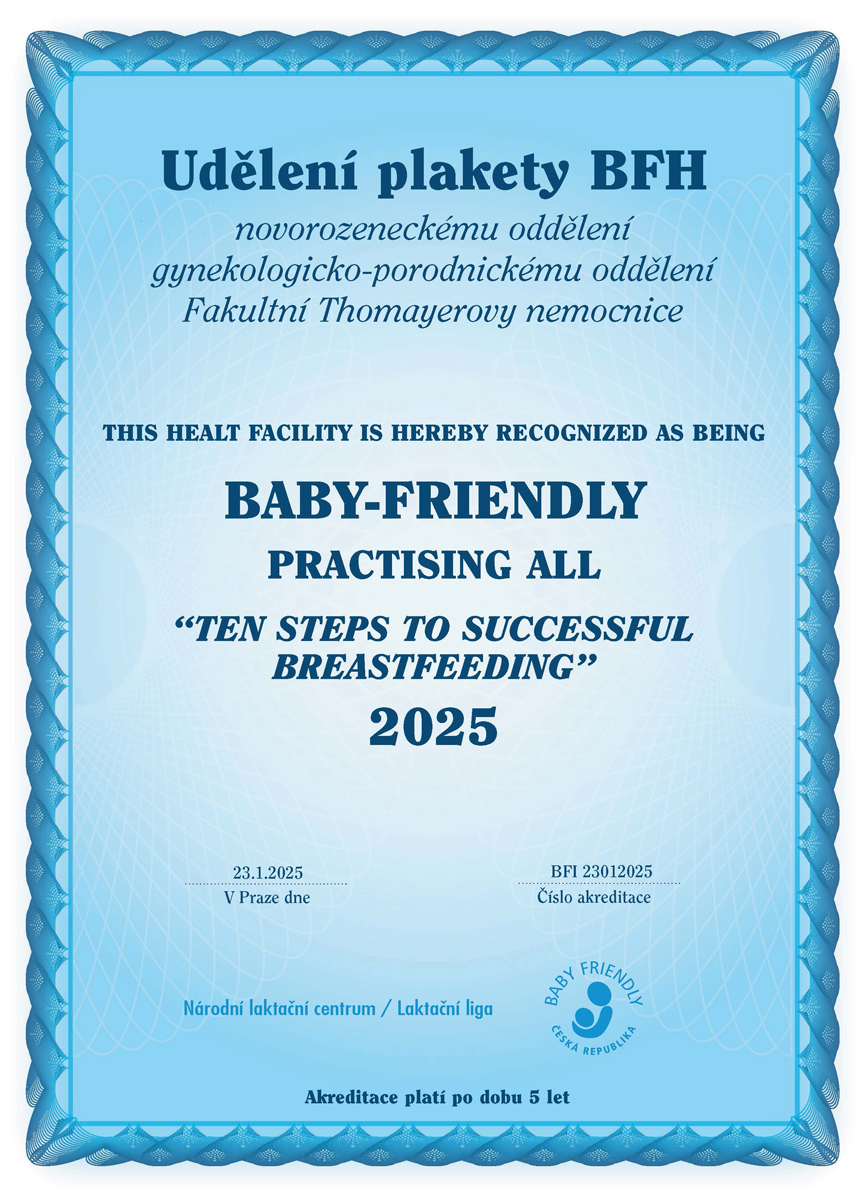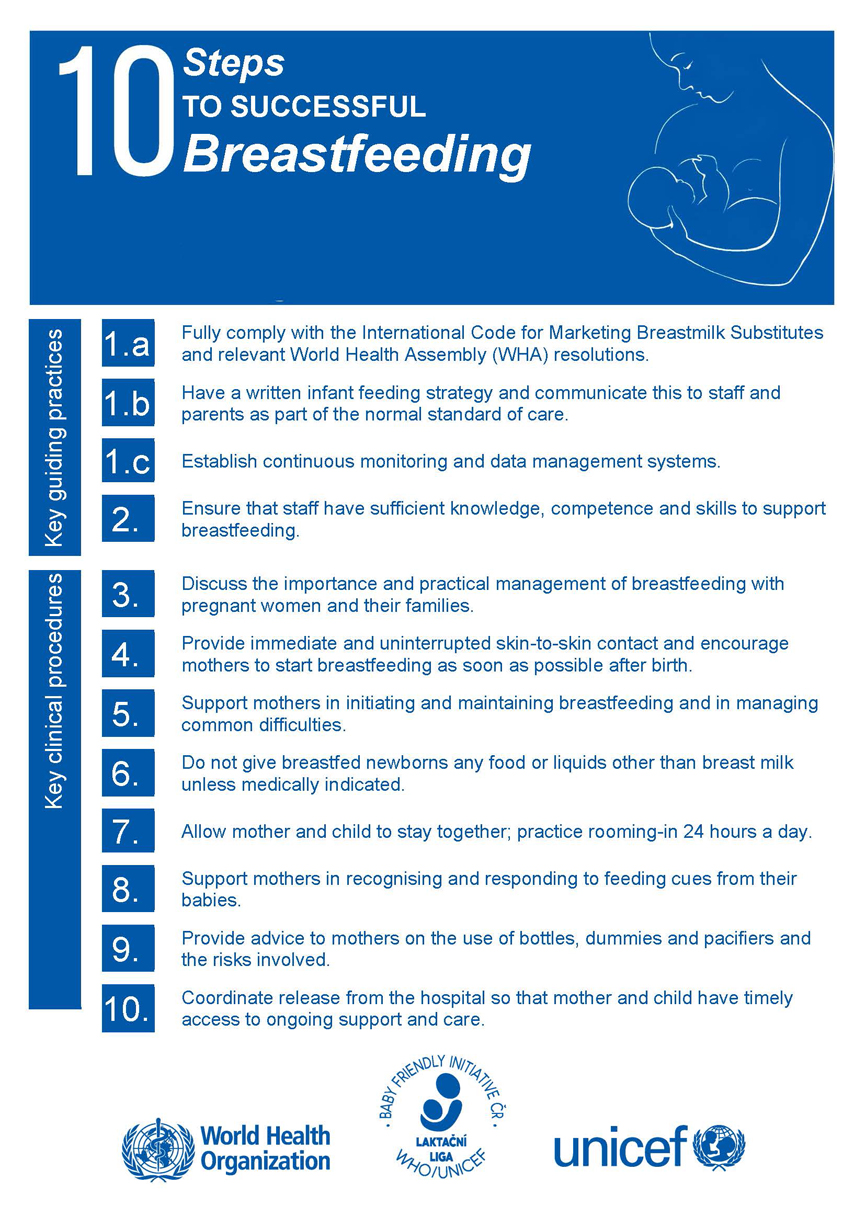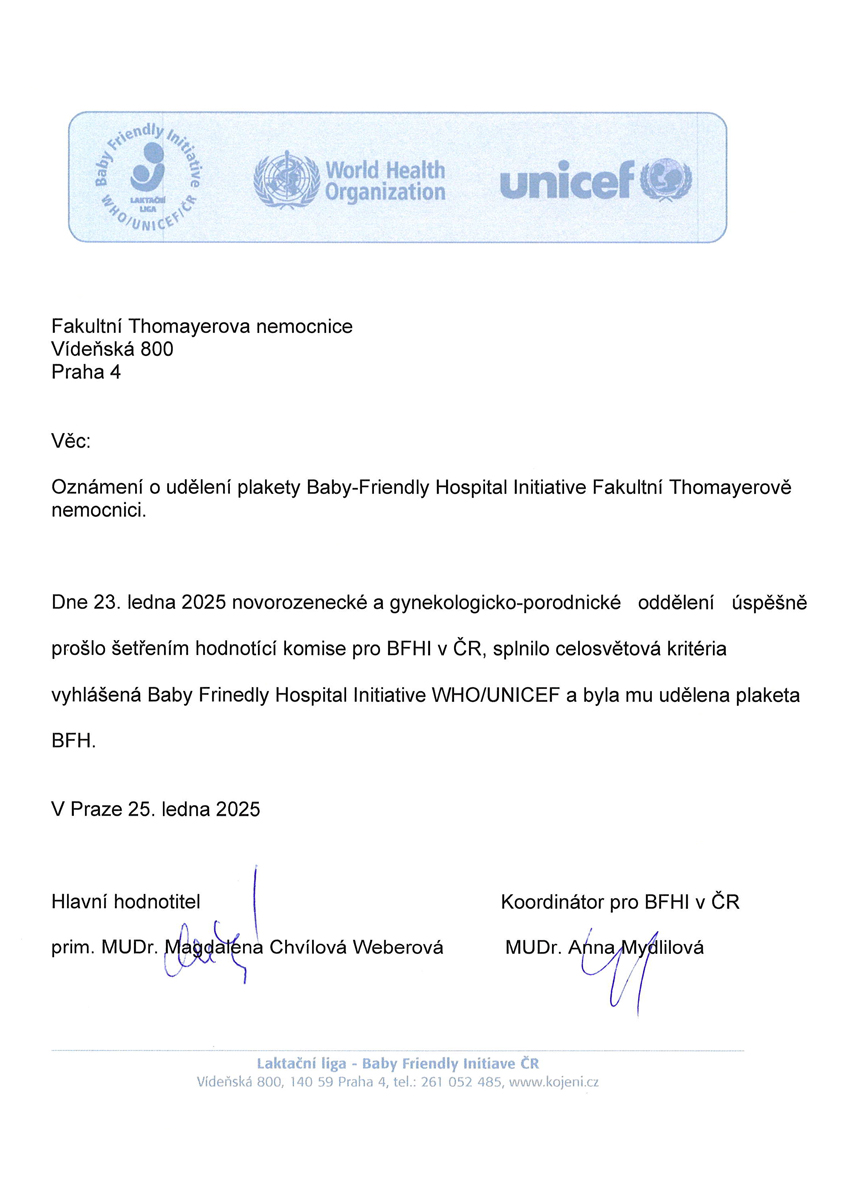- Departments and Clinics
- Department of Gynecology and Obstetrics
- Maternity Hospital
- • Check-in to the Maternity Hospital
- • On-line reservation
- • Delivery rooms
- • Maternity Hospital – Inpatient Department
- • Preparing for childbirth
- • When to go and what to bring to the maternity hospital
- • Consulting centres for pregnant women
- • Baby Friendly Hospital
- Outpatient Clinic
- • Outpatient Clinic of Paediatric Gynaecology
- • Ultrasound scans
- Gynaecology
- • Robot-assisted surgery
- • Comprehensive treatment of uterine fibroids
- • Gynaecology – Inpatient Department
- Intensive Care Unit
- Documents for download
- Apreciation and gratitude
- Photo Gallery
- Career
- Certificates
- Statistics
- History
• Baby Friendly Hospital
The Gynaecology, Obstetrics and Neonatal Department of the Thomayer University Hospital (TUH) has met the conditions for reaccreditation under the Baby-Friendly Hospital Initiative.
The maternity ward of the TUH was accredited as "Baby-Friendly" in 1992 and was the first maternity ward in the Czech Republic with this designation. It has rightfully become a teaching centre for lactation counselling.
In January 2025, the maternity ward at the TUH was the second in the Czech Republic to successfully pass the detailed reaccreditation process, which included an audit by the certification committee, whose evaluators analysed the long-term results of the prevalence of breastfeeding in the TUH and evaluated the quality and duration of the continuing education of the staff of the Gynaecology-Obstetrics and Neonatal Department and, above all, monitored compliance with, and fulfilment of, the “10 Steps to Successful Breastfeeding” defined by the WHO.
The Baby-Friendly Hospital Initiative (BFHI) is a global programme of the WHO and the United Nations Children's Fund (UNICEF) that was launched after the adoption of the Innocenti Declaration on the Protection, Promotion and Support of Breastfeeding in 1990. The BFHI focuses on improving care and support for breastfeeding in health facilities where maternal and child care is provided. Under this programme, most government health agencies recommend that babies be breastfed exclusively during the first six months of life. Studies have shown that breastfed babies are less likely to suffer from serious illnesses, including gastroenteritis, asthma, eczema, respiratory infections and middle ear infections. Breast milk nutrition also has a long-term effect in terms of reducing the risk of developing metabolic syndrome, obesity and hypertension. The benefits of breastfeeding for mothers include reduced risk of hypertension, diabetes, breast and ovarian cancer and osteoporosis.
In order to become a BFHI hospital, a health facility must go through a fairly rigorous and exacting process to meet the 10 steps to successful breastfeeding, a strategy that should be practised for a long time in every maternity ward with this title. The ten basic criteria include adherence to the International Code of Marketing of Breastmilk Substitutes and the relevant WHO resolution, as well as having in place a breastfeeding promotion strategy that is in line with international recommendations. Departments must ensure that health personnel have sufficient knowledge, competence and skills to support breastfeeding. It is essential to facilitate immediate and uninterrupted skin-to-skin contact and encourage mothers to start breastfeeding within one hour of giving birth. To provide mothers with help and support in initiating and maintaining breastfeeding and managing common difficulties associated with breastfeeding. To not give breastfed newborns artificial nutrition or other fluids unless medically indicated. To not separate the child from the mother unnecessarily and allow mothers rooming-in 24 hours a day. The BFHI programme also supports the possibility of alternative feeding, i.e. the administration of milk formulas, e.g. by breast pump, beaker, supplement, etc.





